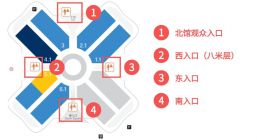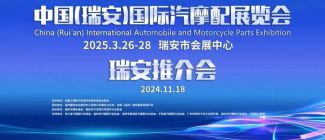What to do if there is a defect in the product purchased by the consumer?
Recall. Under the existing social business system, recalls are a process of eliminating defects in their products carried out by manufacturers of defective products in accordance with legal requirements and procedures. From companies to consumers to the market, "recalls" are a good way to solve product defects.
At the same time, recalls are difficult to avoid. In the process of modern assembly line production becoming intelligent, technological standards and technical limitations may lead to the possibility of defective products. Therefore, "recalls" exist in all corners of the social business system. To put it bluntly, it is the active return behavior of merchants. Such as cars, as small as toys, all have the possibility of being recalled.
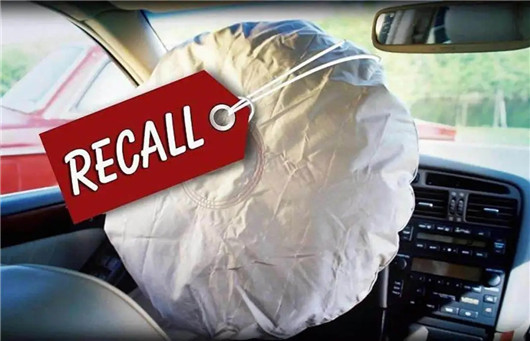
Although automobile manufacturing is the jewel in the crown of modern industry and related technologies have matured, in the face of more complex technical processes, it is unlikely that car companies can fully control product quality on the production side. Therefore, when users use automotive products, the vehicle will be recalled because of problems with engines, airbags, and batteries.
However, whether or not product defects can be minimized before delivery is one of the important tasks for auto companies in the industrial transformation.
"Growth" is the main theme
According to the data provided by the State Administration of Market Supervision and Administration, in the first half of 2021, my country implemented 115 car recalls, involving 4.3085 million defective vehicles. Among them, 21 recalls were affected by defect investigations, involving 486,400 defective vehicles, accounting for 11.29% of the total number of recalls.
Among them, 1,283,800 new energy defective vehicles, accounting for 22.13% of the total number of new energy vehicles. Among the defective vehicles recalled, as in previous years, mainly passenger cars. In 105 recalls, a total of 4.3455 million defective vehicles were involved.
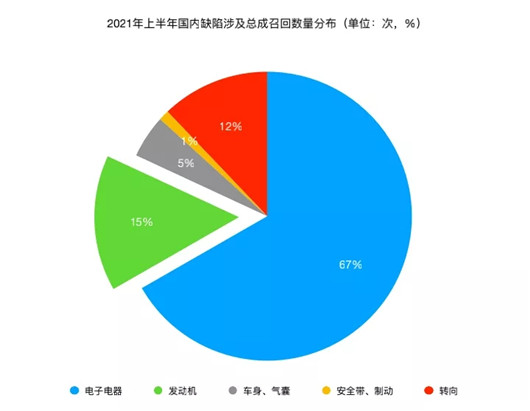
In the same period last year, there were 67 car recalls in the domestic auto market, involving 3.2 million problematic vehicles including 32 brands. This year, the number of recalls has increased by 48 times compared with the same period last year. At the same time, the total number of more than 4.3 million vehicles in the first half of 2021 is also a lot more than the total number of 3.2 million vehicles in the first half of 2020.
In addition, combined with data from the Auto Complaint Network, the number of complaints in the first half of the last three years was 4,975, 4,551, and 5,658 respectively. As we all know, due to factors such as the epidemic, the number of complaints in the first half of 2020 is 424 fewer than that in 2019, a year-on-year decrease of 8.15%. Therefore, the number of complaints in the first half of 2021 has increased significantly compared with 2020, with a total of 1107 more cases, a year-on-year increase. 24.31%.
In addition to the total number of recalls more than the same period last year, the recalls of individual brands are also very representative. Among them, most of them are mainly luxury joint ventures and imported brands, while independent brands are only behind the list.
The brand with the most vehicles recalled in a single time is Mercedes-Benz.
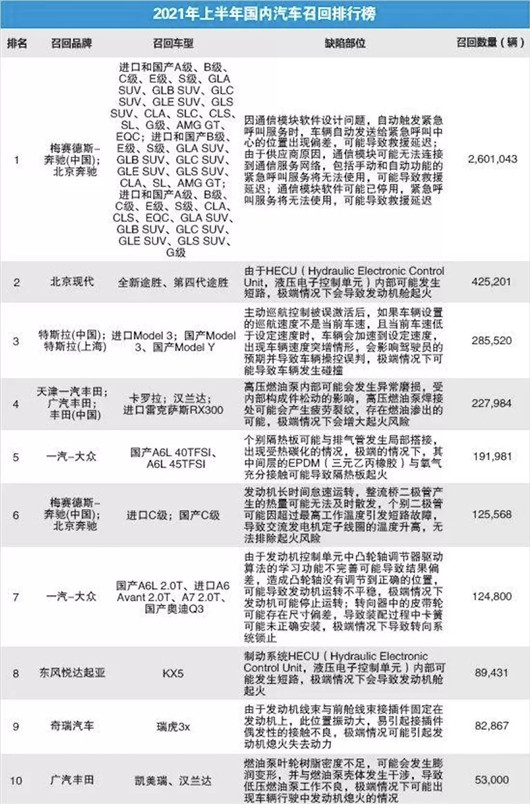
On March 12, the Defective Product Management Center of the State Administration for Market Regulation issued a recall announcement. Mercedes-Benz (China) Automobile Sales Co., Ltd. and Beijing Benz Automobile Co., Ltd. will start from April 12, 2021 due to communication module problems. A total of more than 2.6 million vehicles have been recalled.
In terms of specific complaints, in the first half of the year, there were 30 recalls for electronic and electrical problems, involving more than 2,971,600 defective vehicles; the second was 20 recalls involving engine problems, involving 636,500 vehicles; the third was car bodies, airbags/seat belts And brake/steering reasons were recalled 14 times, involving 208,700, 48,700 and 500,000 defective vehicles, respectively.
In addition, the domestic new energy vehicle market is in a stage of rapid development, and the speed of product and technology changes continues to accelerate, but the quality problems that follow have become more prominent. In terms of related new energy vehicle product recalls, complaints have also begun to appear.
According to statistics, in the first half of this year, in the recall announcement issued by the Defective Product Management Center of the State Administration for Market Regulation, there were as many as 18 recalls involving new energy vehicles, an increase of 12 times compared with last year, and the total number of recalls also showed a substantial increase. situation.
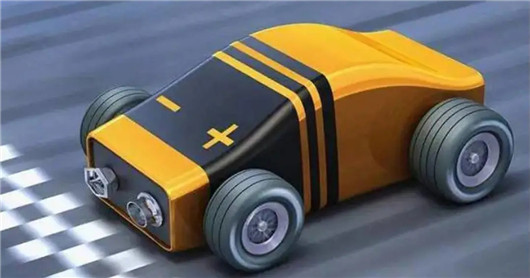
From the point of view of the defect of the recall, the "battery" in the three-electric system of new energy vehicles undoubtedly occupies the primary position. In addition to the battery, the electronic control system is also one of the main reasons for the recall of new energy vehicles in the first half of 2021, and covers high, medium and low grade models, and the issues involved are more complicated.
Although new energy is an industry trend, spontaneous combustion occurs from time to time in new energy vehicles whether they are driving, charging or parking. With the rapid development of the industry, the safety problem represented by spontaneous combustion has become a problem that cannot be ignored in the development of the new energy automobile industry and must be solved quickly and effectively.
From new rules to new formats
In the face of the high level of recall incidents, relevant departments also attach great importance to it.
At the beginning of the year, the State Administration for Market Regulation issued an announcement stating that the “Regulations on the Management of Motor Vehicle Emissions Recalls” have been reviewed and approved at the 6th executive meeting of the State Administration for Market Regulation on March 30, 2021, and approved by the Ministry of Ecology and Environment. Effective on July 1, 2021.
According to requirements, from July 1 this year, all light-duty vehicles sold and registered shall comply with the National VI emission standards; before July 1, 2025, the “in-use compliance inspection” of the fifth phase of light-duty vehicles shall still be implemented. Requirements under the regulations.
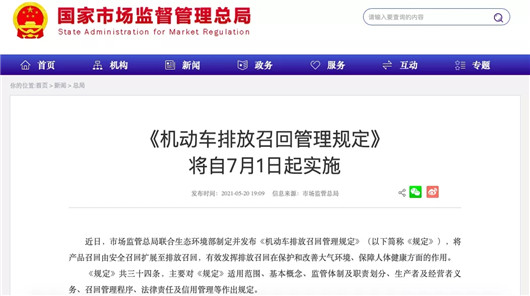
At the same time, the "Regulations" also extended product recalls from safety recalls to emission recalls, and determined that emissions hazards specifically include three situations: due to design and production defects, the emission of air pollutants from motor vehicles exceeds the standard; due to non-compliant environmental protection and durability The requirements of sex, causing motor vehicles to emit air pollutants exceeding the standard; due to design and production reasons, motor vehicles have other emission standards that do not meet the emission standards or unreasonable emissions.
The provisions of these three situations have advanced the "factory qualified" requirement in the field of automobile emissions to the level of "qualified in use".
In July, the "Regulations on Recall Management of Motor Vehicle Emissions" began to be formally implemented, and more stringent regulations were made on vehicle emissions. Half a month after the new regulations were formally implemented, SAIC-GM-Wuling became the first manufacturer to be recalled on a large scale under the new emission recall standard with a recall of more than 1.43 million vehicles.
In fact, the relevant models that Wuling voluntarily recalled met the "National VI" emission standards when they left the factory, but during consumer use, the emissions did not meet the "National VI" standards due to problems such as automobile hardware.
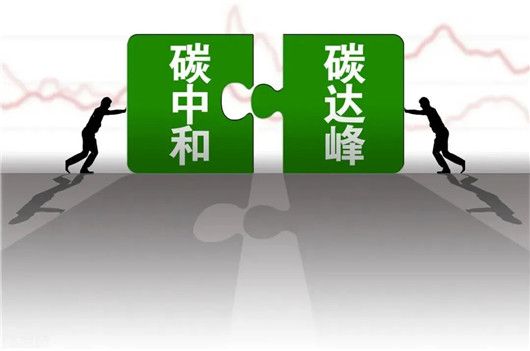
This situation is the "emission recall" of the "Regulations", and it is also the content of the regulations that supplement the previous recall regulations. It is understood that the implementation of the domestic automobile recall plan was limited to the safety field before, and the introduction of the "Regulations on the Management of Motor Vehicle Emissions Recall" puts the "emission recall" and the "safety recall" on the same latitude.
In the short term, the investment in the emission recall of bicycles may be higher than that of the safety recall of automobiles, and it will also bring greater economic and brand pressure to some companies with low emission technology levels. However, in the long run, the "Regulations" will encourage the motor vehicle industry to pay more attention to emission technology research and development and related standard requirements, forcing companies to take the initiative to upgrade technology.
In recent years, as countries attach importance to environmental issues, "carbon neutrality" and "carbon peaking" have become current "hot words".
In the process of promoting China's carbon peak by 2030 and carbon neutrality by 2060, how to achieve control and emission reduction has become an important task facing the automobile industry. In this context, behind the rapid transformation, car owners and car companies need to bear the cost of growth.
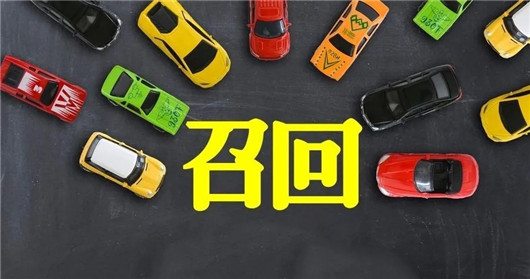
By the way, for companies, recalls are not entirely negative. On the one hand, it has a significant impact on brand reputation and subsequent capital investment, and it will even bring indelible scars to the future development of the company; on the other hand, the recall also accelerates the evolution of product technology. If car companies can "Taking history as a mirror, knowing mistakes and correcting them" is a good thing from the perspective of the long-term development of the enterprise.
For consumers, there is no need to panic too much in the face of car recalls. If car companies take the initiative to recall, we can forgive or trust it with reassurance. Because they dared to recall, it proved that car companies did not choose to escape. Moreover, the product recall only reflects that part of a batch of products does not meet the relevant specifications, and not all of the batch of products have been recruited.
Of course, if a company refuses to recall a vehicle due to a vehicle defect, or even tries to evade responsibility, we also have the responsibility to supervise the complaint.
AMS2024 Exhibition Guide | Comprehensive Exhibition Guide, Don't Miss the Exciting Events Online and Offline
Notice on Holding the Rui'an Promotion Conference for the 2025 China (Rui'an) International Automobile and Motorcycle Parts Exhibition
On September 5th, we invite you to join us at the Wenzhou Auto Parts Exhibition on a journey to trace the origin of the Auto Parts City, as per the invitation from the purchaser!
Hot Booking | AAPEX 2024- Professional Exhibition Channel for Entering the North American Auto Parts Market
The wind is just right, Qianchuan Hui! Looking forward to working with you at the 2024 Wenzhou Auto Parts Exhibition and composing a new chapter!
Live up to Shaohua | Wenzhou Auto Parts Exhibition, these wonderful moments are worth remembering!
Free support line!
Email Support!
Working Days/Hours!
